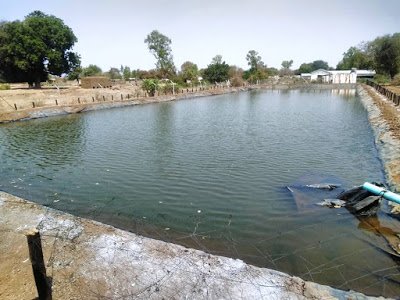 |
| A fish pond at Tongogara Refugee Camp |
Stephen
Ephraem
CHIPINGE – Refugees and asylum seekers
at Tongogara Refugee Camp in Chipinge are expected to make US$36 000 from a
fish farming project which was initiated by World Vision.
The fish farming project is under World Vision’s livelihood
intervention programme.
Speaking to delegates during a tour of Tongogara
Refugee Camp recently, World Vision staff Joel Bizure said he expected the
project to help improve the lives of beneficiaries.
“The fishery project was initiated to support 50 fish
farmers who will continuously receive training through World Vision in
partnership with Agriculture and Extension Services (Agritex) and Veterinary Services.
“Fish farmers are expected to produce 12 000 fish per
cycle. Mature fish shall be sold at six months according to weight between 1kg
and 2kg while fingerlings below 70 will be kept as breeding stock used for fish
production.
“Fish will be weighed and sold according to the
weights and standards that meet the market requirements and they will be sold
at a price of between US$3 and US$4 per kg. With a stock of 12 000 fish, US$36
000 is guaranteed,” said Bezure.
According to World Vision, about US$15 000 was spent
on the fish project.
“The initial investment was US$15 00 which include
US$6 700 used in construction and renovations of two fish ponds measuring 50m
by 20m each. US$8 300 was used to purchase 12 000 fingerlings as well as
purchasing 310 bags of fish feed.
“The investment was seed money for the fish feed and
pond renovation. Farmers are expected to
plough the money from sales back into the fish business so that the project
keeps on going. That is why we are capacitating the farmer through training,”
he said.
The World Vision livelihood intervention program shall
help refugees acquire high productive assets, high literacy level which promotes
good investment decisions such as farming as a business and improved access to
capital through savings.
